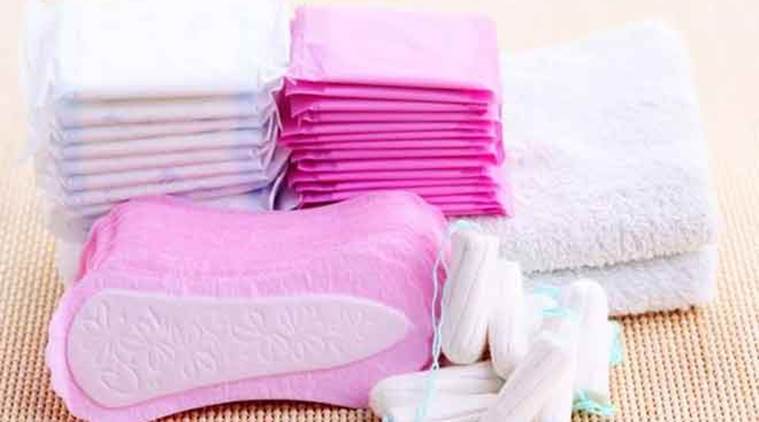- India
- International
World Menstrual Hygiene Day: In rural MP, women produce, distribute sanitary pads across 335 villages
On the occasion of World Menstrual Hygiene Day (May 28), Rubeena spoke about the challenges they faced, especially during the lockdown.
 The unit is part of the Samriddhi Project, a venture supported by the United Nations Population Fund (UNFPA).
The unit is part of the Samriddhi Project, a venture supported by the United Nations Population Fund (UNFPA).
While several have lost their jobs during the nationwide lockdown, at a manufacturing plant in the remote location of Bada Malhera in Madhya Pradesh’s tribal Chhatarpur district, 29-year-old Rubeena Bano, along with four girls, has been engaged in the daily production of more than 600-700 packets of sanitary napkins (3,600 to 4,200 pads) in the last month.
The unit is part of the Samriddhi Project, a venture supported by the United Nations Population Fund (UNFPA). The unit is run by women and young girls mostly above the age of 18 years, who are from the local community and make ultra-thin non-plastic biodegradable sanitary napkins that are sold using a social marketing mechanism keeping a low-profit margin, to women and girls across 335 villages in Chhatarpur through peer educators and adolescent girls.
On the occasion of World Menstrual Hygiene Day (May 28), Rubeena spoke about the challenges they faced, especially during the lockdown. “Our unit had to shut down for a month or so, but there was a huge demand for sanitary pads,” she said. Jagannath Dubey, project coordinator of Samriddhi Project, said the girls were told to strictly follow rules of physical distancing and wearing masks, and then distribute the pending stock at the factory in the villages.
The girls have been able to distribute a stock of 7,000 pads in the last two months across 335 villages. With chemists located in towns and very few being in the peripheral areas, Rubeena said a lot of women – especially young girls feel extremely shy to approach the local-level shops to purchase pads. “Most of the shopkeepers at the counter are men, and hence our girls really feel awkward to ask for pads,” she added.
“The unit can produce 650 – 700 packets (six sanitary pads in each) per day from scratch to finished goods, after taking necessary precautions of sterilisation using U V light. The unit sells the packets to peer educators for Rs 20, and earns Rs 2.5 per packet, which is to be used for operation and running cost,” said Dr Nilesh Deshpande, state programme coordinator, UNFPA, MP.

The project has selected and trained 1,005 adolescent girls as peer educators in these villages, and these girls are known as “hamsakhis”. They formed a group of 30 in their respective villages to conduct monthly life skill sessions and other empowerment related activities, with support of the project staff. Currently, over 10,000 adolescent girls network in five blocks of the district.
“Menstruation is a natural and monthly biological occurrence among females aged approximately between 10 and 50 years,” Argentina Matavel, UNFPA India representative, said. “This does not change because of coronavirus. We need to break myths and taboos around it, and enable girls to manage menstruation safely, freely and with dignity – they need sanitary pads.”
Apr 25: Latest News
- 01
- 02
- 03
- 04
- 05








































